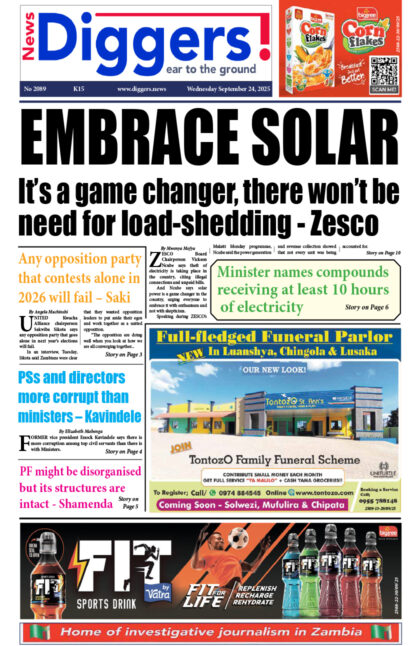According to Article 202 (1) of the Constitution of Zambia (Amendment) Act No. 2 of 2016, and the National Planning and Budgeting Act No. 1 of 2020, the national budget can be defined as estimates of Governmental expenditures and revenues for the given financial year. Fundamentally, it outlines the amount, based on taxes and other revenue sources, that the Government plans to spend and details how these funds will be allocated throughout the fiscal year. The budget formulation process involves various stakeholders, including the public. This week’s piece focuses on the importance of citizen participation in the budget preparation process.
Citizen participation generally encompasses various means through which the public – including individuals, civil society organizations (CSOs), community groups, business organisations, academics, and other non-state actors – directly engage with the Ministry of Finance and National Development (MoFND) on fiscal policy design or budget preparation and implementation. It essentially involves making budget proposals on how the government should allocate and raise public resources. Notably, the Constitution of Zambia (Amendment) Act No. 2 of 2016 together with the National Planning and Budgeting Policy of 2014 provides for citizens to participate in this process. Citizen participation in the national budget formulation process is important for several reasons.
To begin with, the national budget serves as an instrument meant to serve the citizens – it is the people’s budget. As taxpayers and beneficiaries of public services, citizens have a responsibility to ensure that the budget reflects their needs and priorities. It provides a platform for the citizens to demand from their government the implementation of public policy that responds to their needs and priorities. For example, while some people may want to see more resources allocated towards the agriculture sector to combat the effects of climate change, others may find reason in pushing for a further increase in the Constituency Development Fund allocation. However, all these aspirations can only become a reality if citizens actively participate in the process by submitting their proposals to the MoFND through the available channels.
Additionally, active citizen participation in the budgeting process enhances transparency in decision-making and can serve as a deterrence from corruption and abuse of public finances. Moreover, even after the budget has been announced, the government is compelled to justify its budgetary decisions, making the process open to public scrutiny. Furthermore, public participation in the budget process is important in that it increases both transparency and accountability in the public finance management. Increased public visibility in the budgetary processes can deter illicit activities that may result loss of budget integrity. Overall, citizen participation acts as a check on government actions, compelling officials to act in the best interest of their constituents and uphold higher standards of fiscal responsibility.
Moreover, following the successful debt restructuring process— which has seen about 75 percent of Zambia’s debt restructured, it is important for citizens to provide the checks and balances to ensure that the available resources are efficiently channelled towards rebuilding the economy. Thus, active citizen participation could help in safeguarding against mismanagement of resources— a scenario that could potentially lead the country to default on its debt repayment obligations when they fall due.
As the MoFND is currently in the process of gathering proposals for the 2025 national budget, it is important that citizens engage and participate actively. Active participation affords citizens control over the allocation of public resources, ensuring that such allocations more accurately reflect the people’s needs and aspirations. However, a pivotal question remains: how can citizens effectively engage in this process? Join me next week as I focus on strategies for achieving meaningful and effective citizen participation in the national budget process.
About the Author
Elijah Mumba serves as Researcher for Public Finance and Economic Policy at the Centre for Trade Policy and Development and coordinates the Zambia Tax Platform. He holds a bachelor’s degree in economics with Mathematics from the University of Zambia, as well as a master’s degree in development economics from the University of Cape Town as a Mandela Rhodes Scholar.
























